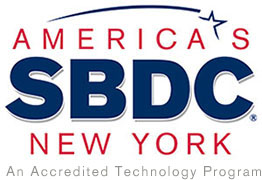Social Media Marketing for Small Business
Excerpted from "Social Media Marketing for Small Business" by Simone Mullinax, Director of Communications, Jamestown Community College for the New York Small Business Development Center. Contact your local SBDC for a full version of this publication.

Social Media Planning Worksheets:
Worksheet 1: Google Your Business
Worksheet 2: Current Social Media Presence
Worksheet 3: Competition Investigation
Section 1: Defining Social Media
What is Social Media?
Social media (SM) is a broad term for creating and sharing content across digital platforms. Traditional media (i.e. newspaper, radio, television, film, etc.) has typically been a one-way communication interaction. On the other hand, social media is a two-way communication interaction. The key word here is interaction. Social media gives you the opportunity to respond instantly to the content you are interacting with by posting feedback, sharing with friends, or creating your own content and distributing it across social media platforms. Social media content is typically engaging, user-driven, and personal. Today, consumers and businesses alike use social media to connect and engage with one another but they also use it as a key marketing tool.
What is Social Media Marketing?
The introduction of the Internet drastically changed the marketing landscape by creating a space where companies and consumers can easily interact with one another. How are they doing this? Through social media platforms. These platforms allow companies to initiate, monitor, and drive conversations related to their products and brand. Consumers can now tell their favorite businesses how they feel about certain products and share this news with all of their friends – a dangerous and valuable tool to the business owner. Using social media platforms as a marketing tool has opened the door for conversations, which opens the door for a higher level of customer satisfaction and brand loyalty.
What is Social Media Marketing Not?
Social media marketing is not a be all, end all marketing strategy. It cannot be the sole driver for your marketing team, but it can greatly enrich your marketing plan. If social media platforms are specifically designed to create engaging content that drives two-way interactions, then businesses should focus on the interactional aspect of this technology. The main goal of social media marketing is to create genuine, dynamic connections with real people. Therefore, social media marketing is not a podium to stand on with a really loud megaphone constantly shouting, “Buy this!” at anyone who wanders by your business. That doesn’t start a conversation! Instead, think of social media marketing as a way to constantly connect with the consumer by bringing them meaningful content that cultivates an authentic relationship with your brand and product.
Social Media 101: Terminology
The introduction of new technology has brought with it new terminology. Key terms will be identified throughout this guide but here are a few of the basics to get you started. All terminology in this guide is listed in order of importance.
- Platforms: sometimes referred to as social networks, these are web-based applications that make it easy to create and transmit content. These include: Facebook, Twitter, Instagram, Pinterest, LinkedIn, YouTube, and many more!
- Content: the physical words, pictures, video, and audio that is created and shared across social networks.
- Post: the physical “posting” of content on a platform; a term typically associated with Facebook, blogs, and forums.
- Content Management System (CMS): also known as Social Media Management Tools; web-based services or apps that connect a user’s social media accounts and helps the user be more efficient. These tools are often used to schedule posts to be distributed across accounts, monitor and listen to the social media landscape, and gather helpful data to analyze return on investment. (e.g., Hootsuite, Buffer, etc.)
- Social media ROI: a measurement of effectiveness of the investment of a business in social media and depends largely on the unique social media goals of that business.
- Social media monitoring: a process of monitoring and responding to interactions occurring on social media platforms.
- Feed: frequently updated content that appears on social media sites. Typically, users scroll through their feeds to gather social information and posted content appears on the feed of a social media platform.
- Comment: feedback from users, typically displayed below distributed content on a social media site.
- Influencer: influential individuals on a social media platform. These are industry-specific trendsetters (e.g. bloggers, spokespersons, etc.).

